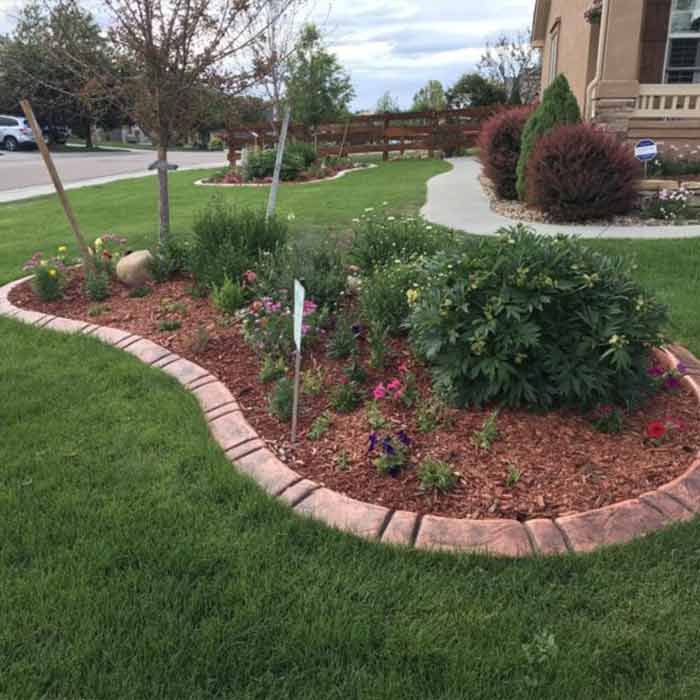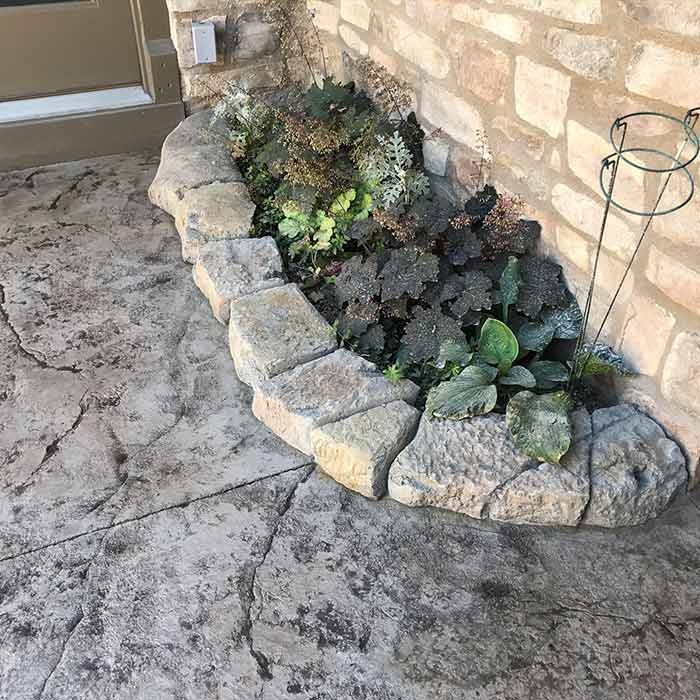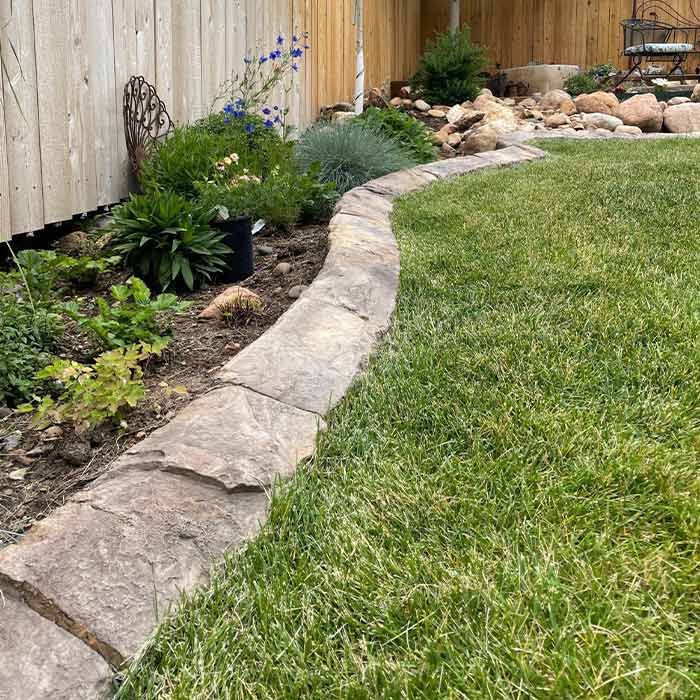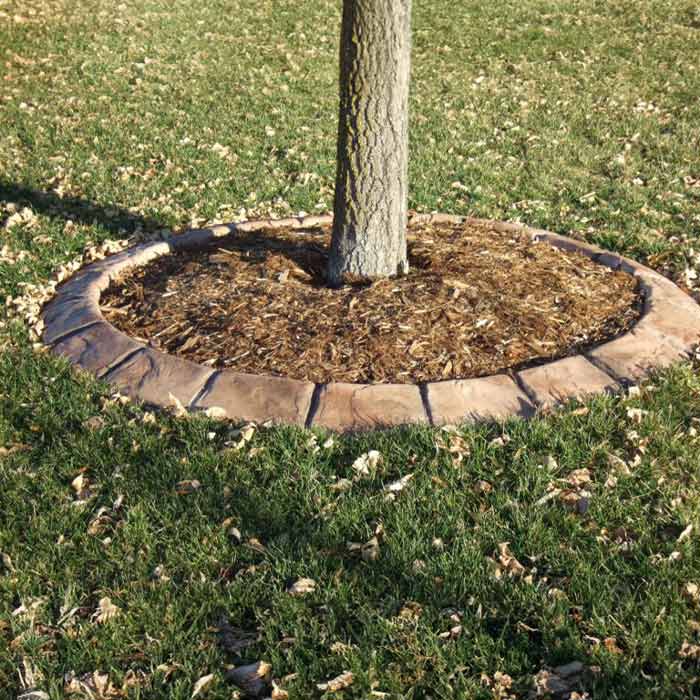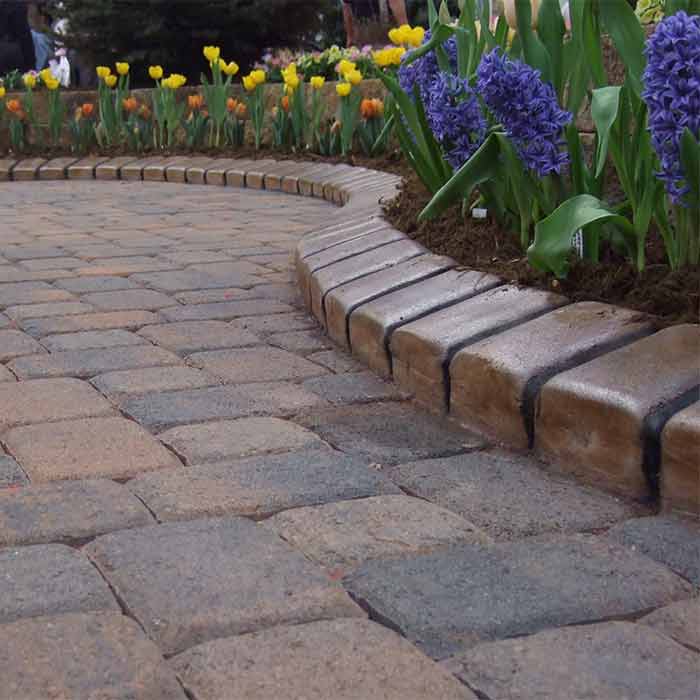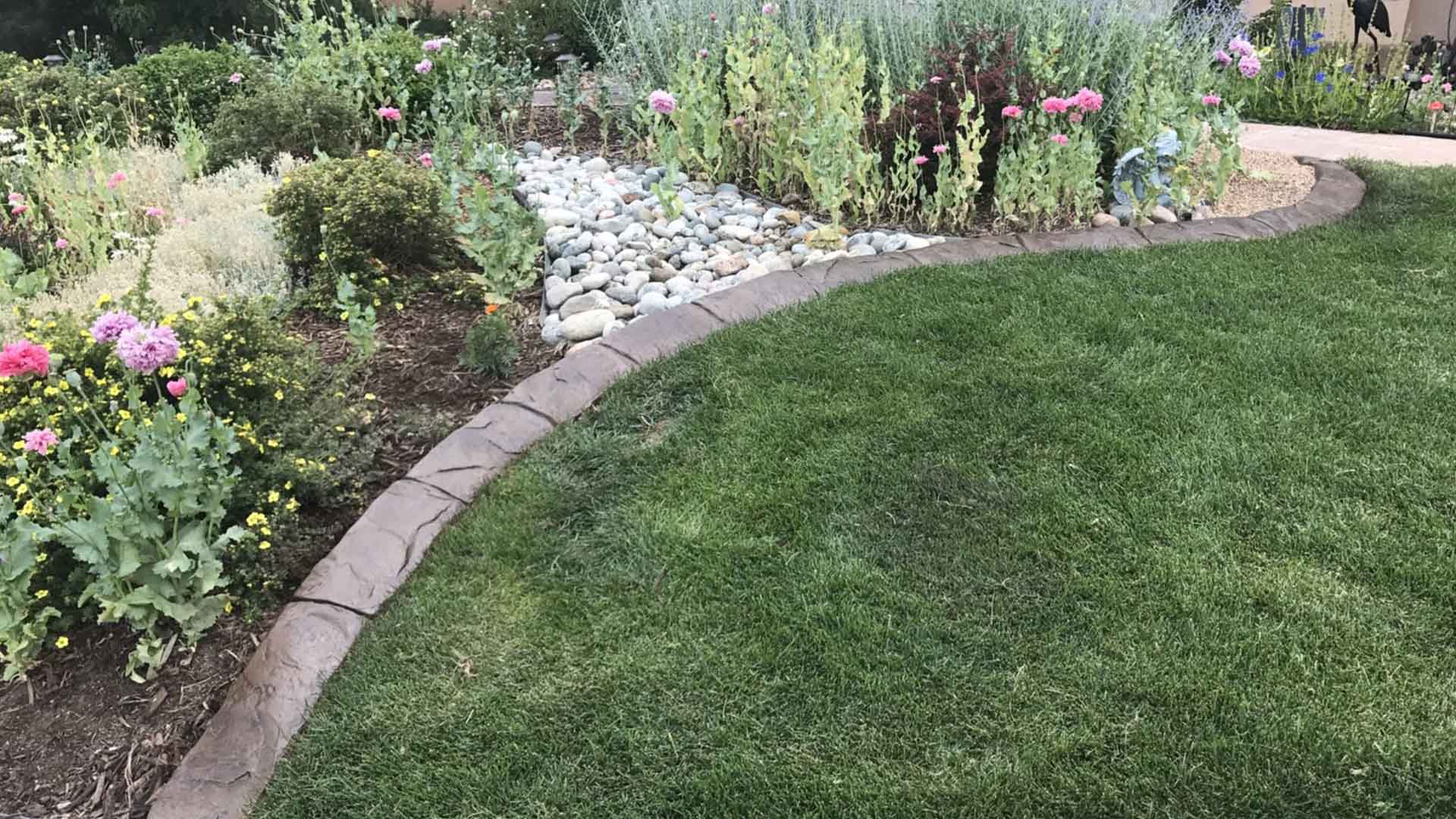Introduction to Biochar: Nature’s Hidden Champion
From the heart of Colorado’s Front Range, Fort Collins gardeners and landscapers are discovering a remarkable soil amendment with ancient roots and modern applications. Biochar soil amendments represent one of the most significant innovations in sustainable landscaping services in recent years, offering numerous benefits for Colorado’s challenging soil conditions.
As the owner of A Better Edge, a premier landscape services provider in Colorado, I’ve witnessed firsthand how biochar soil amendments revolutionize local gardens, lawns, and commercial landscapes. This carbon-rich material, created through pyrolysis (heating organic matter in an oxygen-limited environment), has properties that address many of the unique challenges Colorado gardeners face.
Biochar soil amendments have gained popularity among residents seeking sustainable solutions to everyday gardening challenges. Unlike traditional fertilizers, which require frequent reapplication, biochar creates lasting improvements to soil structure and function, making it an environmentally responsible choice for conscientious homeowners and businesses.
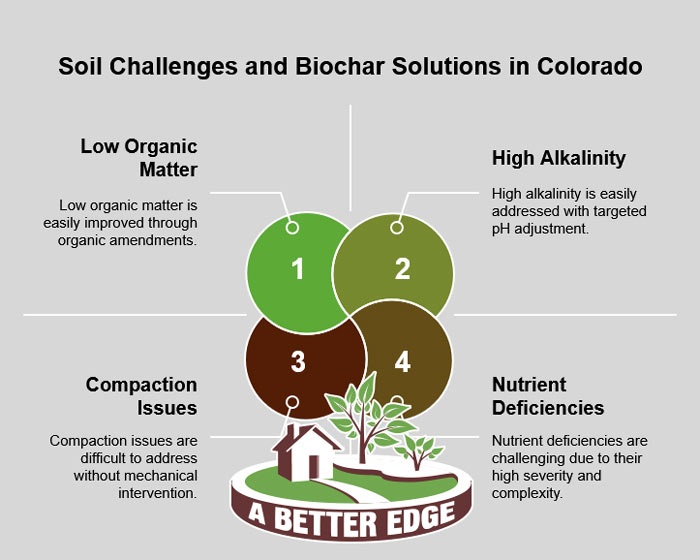
Understanding Colorado’s Unique Soil Challenges
Before exploring the benefits of biochar soil amendments, it’s essential to understand the specific soil challenges we face in Colorado:
- High alkalinity (pH levels often above 7.5)
- Heavy clay content in many areas
- Low organic matter (typically less than 1%)
- Poor water retention in some areas, excessive water retention in others
- Nutrient deficiencies, particularly iron, zinc, and phosphorus
- Compaction issues from construction and heavy use
- Salt accumulation from irrigation water
These challenges create a problematic growing environment for many plants, leading to stunted growth, nutrient deficiencies, and increased susceptibility to pests and diseases. Traditional solutions often provide only temporary relief or require continuous application, creating a cycle of dependency on amendments and treatments.
This is precisely where biochar soil amendments shine as a long-term, sustainable solution. Our landscape services in Colorado incorporate biochar soil amendments to address these regional challenges while promoting long-term soil health.
The Science Behind Biochar Soil Amendments
Biochar soil amendments work through several key mechanisms that dramatically improve soil function:
Microporous Structure
Biochar contains millions of microscopic pores that serve multiple functions in the soil:
- Water Retention: The porous structure holds water like a sponge, releasing it gradually to plant roots.
- Aeration: Despite holding water, biochar maintains tiny air spaces that allow roots to breathe.
- Habitat: These pores provide habitat for beneficial soil microorganisms.
Surface Area and Charge
Biochar has an extraordinarily high surface area per volume, much of which carries a negative electrical charge:
- Nutrient Binding: This negative charge attracts and holds positively charged nutrients like calcium, magnesium, and potassium.
- Reduced Leaching: By binding nutrients, biochar prevents them from washing away with irrigation or rainfall.
- Slow Release: Bound nutrients are gradually released to plants, providing steady nutrition.
Carbon Structure
The stable carbon structure of biochar soil amendments offers unique benefits:
- Persistence: Unlike compost or mulch, biochar doesn’t decompose quickly, providing benefits for decades or centuries.
- Carbon Sequestration: By incorporating biochar into your soil, you remove carbon from the atmospheric cycle and store it underground.
At A Better Edge, our landscape services team has been carefully studying the science of biochar soil amendments to maximize their effectiveness in specific conditions.
Biochar Soil Amendments vs. Traditional Soil Amendments
When comparing biochar soil amendments to traditional options like compost, manure, or commercial fertilizers, some significant differences emerge:
| Amendment Type | Longevity | Nutrient Content | Carbon Sequestration | Water Retention | pH Effect |
|---|---|---|---|---|---|
| Biochar Soil Amendments | 100+ years | Low (holds nutrients) | High (stable carbon) | Very High | Slightly raises |
| Compost | 1-3 years | Medium-High | Low (decomposes) | Medium | Varies |
| Manure | 1-2 years | High (initially) | Very Low | Low-Medium | Slightly lowers |
| Peat Moss | 3-5 years | Very Low | Negative | High | Lowers |
| Commercial Fertilizer | Months | Very High | None | None | Varies |
This comparison highlights why biochar soil amendments have become essential to our landscape services. While traditional amendments need frequent reapplication, biochar provides lasting benefits while sequestering carbon.
As one of our satisfied customers recently shared:
“After adding biochar soil amendments to my vegetable garden last spring, I was amazed at the difference. Not only did my plants grow more vigorously, but I reduced my watering by almost 30%. The A Better Edge team explained how biochar works, and I’m convinced—this is the future of gardening.”
How Biochar Soil Amendments Transform Colorado Soils
Now let’s explore how biochar soil amendments specifically address Colorado’s soil challenges:
Clay Soil Improvement
Colorado has significant areas with heavy clay soils that compact easily and drain poorly. Biochar soil amendments create permanent pathways for water and air movement by:
- Preventing clay particles from binding too tightly
- Creating stable soil aggregates that resist compaction
- Establishing permanent pore spaces for drainage and root growth
Water Management
Colorado’s semi-arid climate makes water management critical. Biochar soil amendments help by:
- Increasing water-holding capacity by up to 30%
- Reducing irrigation needs
- Preventing runoff during heavy rains
- Providing consistent moisture to plant roots
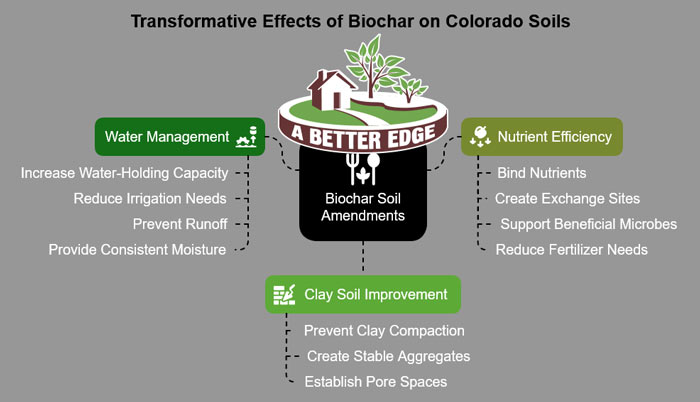
Nutrient Efficiency
Colorado soils often struggle with nutrient deficiencies and poor nutrient retention. Biochar soil amendments address this by:
- Binding nutrients that would otherwise leach away
- Creating exchange sites where nutrients remain available to plants
- Supporting beneficial microbes that help plants access nutrients
- Reducing fertilizer requirements over time
Our landscape services team has documented cases where biochar soil amendments have reduced fertilizer needs by up to 50% while improving plant health and vigor.
Biochar Soil Amendments in Different Landscape Applications
At A Better Edge, we incorporate biochar soil amendments into various landscape services across Colorado State. Here’s how this versatile material can benefit different landscape elements:
Lawn Establishment and Renovation
When establishing or renovating lawns, incorporate biochar soil amendments before seeding or sodding:
- Improves germination rates by maintaining consistent moisture
- Reduces irrigation requirements once established
- Creates deeper, more drought-resistant root systems
- Enhances turfgrass resistance to foot traffic and wear
Vegetable and Flower Gardens
For productive gardens, biochar soil amendments:
- Increase yields by improving nutrient availability
- Reduce disease pressure through better soil structure
- Extend the growing season by moderating soil temperature fluctuations
- Support beneficial soil microorganisms
Tree and Shrub Planting
When planting trees and shrubs as part of our landscape services, biochar soil amendments:
- Reduce transplant shock by improving root zone conditions
- Accelerate establishment by enhancing mycorrhizal associations
- Provide long-term soil structure improvements throughout the plant’s life
- Create better conditions for root growth in compacted urban soils
Green Infrastructure
For rain gardens, bioswales, and other stormwater management features, biochar soil amendments:
- Enhance water filtration capacity
- Remove pollutants from stormwater
- Improve plant performance in challenging conditions
- Increase the longevity and effectiveness of these systems
Application Rates and Methods for Biochar Soil Amendments
The effectiveness of biochar soil amendments depends on proper application. Based on our experience providing landscape services, we recommend the following application rates:
General Landscape Areas
- New Installation: 5-10% biochar by volume mixed into the top 6-8 inches of soil
- Existing Landscapes: Apply 1/4 to 1/2 inch layer of biochar and incorporate to a depth of 2-4 inches
Vegetable Gardens
- Initial Application: 10-15% biochar by volume mixed into the top 10-12 inches
- Maintenance: Add 5% biochar by volume annually, mixed with compost
Trees and Shrubs
- Planting Holes: 10-20% biochar mixed with backfill soil
- Root Zone Treatment: For established plants, incorporate 1-2 inches of biochar within the drip line
Lawns
- New Installation: 5% biochar by volume incorporated into the soil before seeding or sodding
- Topdressing: Apply 1/8 to 1/4 inch layer over established turf, followed by aeration
It’s important to note that biochar soil amendments should be “charged” before application by mixing with compost, soaking in a nutrient solution, or combining with organic fertilizers. This pre-charging process fills the biochar’s absorption sites with nutrients, preventing temporary nutrient tie-up in the soil.
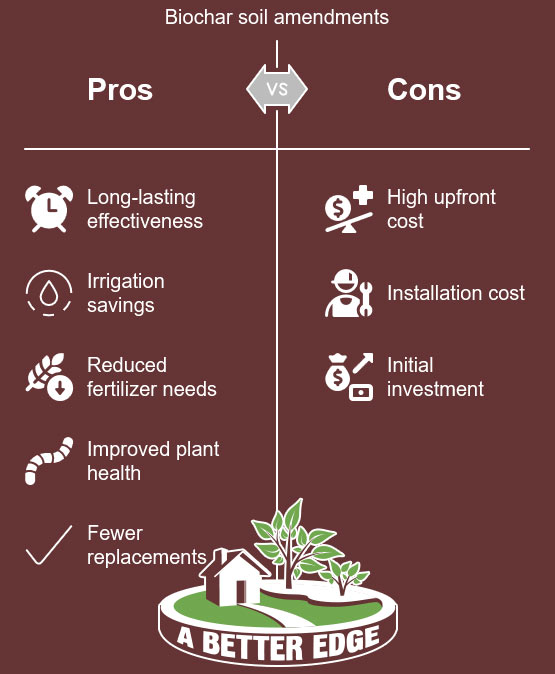
Cost Considerations for Biochar Soil Amendments
Investing in biochar soil amendments as part of your landscape services represents a long-term approach to soil improvement. While the upfront cost is higher than traditional amendments, the extended benefits provide an excellent return on investment:
Material Costs
- Premium Grade Biochar: $70-$110 per cubic foot
- Standard Landscape Grade: $40-$60 per cubic foot
- Bulk Agricultural Grade: $30-$40 per cubic foot
Installation Costs
When incorporated as part of comprehensive landscape services:
- New Landscape Installation: $20-$40 per square foot (including biochar soil amendments)
- Renovation of Existing Areas: $36-$100 per square foot (including biochar soil amendments)
- Topdressing Application: $6-$10 per square foot
Long-Term Value Considerations
While these costs might seem significant compared to traditional amendments, consider the following:
- Biochar remains effective for decades, unlike amendments that require annual reapplication
- Irrigation savings often offset initial costs within 2-5 years
- Reduced fertilizer requirements provide ongoing savings
- Improved plant health leads to fewer replacements and reduced maintenance
At A Better Edge, our landscape services team can provide detailed cost-benefit analyses for biochar soil amendments based on your specific property conditions.
Sourcing Quality Biochar Soil Amendments
Not all biochar is created equal. Quality and characteristics can vary significantly depending on:
- Feedstock material (wood, bamboo, agricultural waste, etc.)
- Production temperature
- Processing methods
- Particle size distribution
For landscape services, we recommend:
Local Sources
Several Colorado companies now produce high-quality biochar soil amendments specifically for our regional conditions:
- Colorado Carbon Company: Produces pine-based biochar ideal for our alkaline soils
- Rocky Mountain Biochar: Creates custom biochar blends for different applications
- Front Range Biochar: Specializes in biochar for water conservation
Quality Indicators
When sourcing biochar soil amendments, look for:
- Certification: IBI (International Biochar Initiative) certification ensures basic quality standards
- Carbon Content: Higher carbon content (>70%) indicates stable, high-quality biochar
- pH Level: For Colorado soils, slightly acidic to neutral biochar (pH 6.0-7.0) is ideal
- Particle Size: Mixed particle sizes (dust to 1/4 inch) provide optimal soil benefits
Our landscape services team at A Better Edge has developed relationships with the best biochar producers in the region to ensure our clients receive only the highest quality materials.
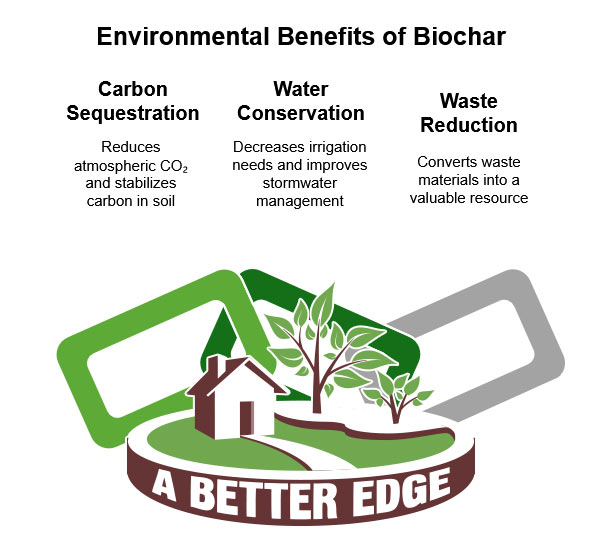
Biochar Soil Amendments: Environmental Benefits Beyond Your Landscape
The benefits of biochar soil amendments extend far beyond your property boundaries:
Carbon Sequestration
By incorporating biochar into your landscape through our services, you’re contributing to climate change mitigation:
- Each cubic yard of biochar represents approximately 1-1.5 tons of CO₂ removed from the atmosphere
- This carbon remains stable in the soil for hundreds to thousands of years
- A typical residential application can sequester 2-5 tons of CO₂ equivalent
Water Conservation
In water-conscious Colorado:
- Reduced irrigation requirements conserve our precious water resources
- Improved stormwater infiltration reduces runoff and erosion
- Better water retention decreases the strain on municipal water systems
Waste Reduction
Many biochar producers use waste materials as feedstock:
- Forest management debris
- Agricultural waste
- Urban tree trimmings
By choosing biochar soil amendments as part of your landscape services, you’re supporting converting these “waste” materials into a valuable resource.
Conclusion: The Future of Sustainable Landscaping
Biochar soil amendments represent a solution to current landscape challenges and a paradigm shift in how we approach soil management. At A Better Edge, our landscape services increasingly incorporate biochar because we believe in both its immediate benefits and long-term value.
Residents have a unique opportunity to pioneer this approach, creating landscapes that are:
- More resilient to climate extremes
- Less resource-intensive
- Healthier and more vibrant
- Environmentally responsible
As we look to the future of landscaping in Colorado, biochar soil amendments stand out as a technology that bridges ancient wisdom with modern science. By incorporating this remarkable material into your landscape, you’re improving your property and participating in a movement toward truly sustainable land management.
Our landscape services team at A Better Edge is ready to help you explore how biochar soil amendments can transform your property. Contact us today to learn more about incorporating this revolutionary material into your landscape plan.
More info regarding Biochar Soil Amendments can be found on the USDA website.





